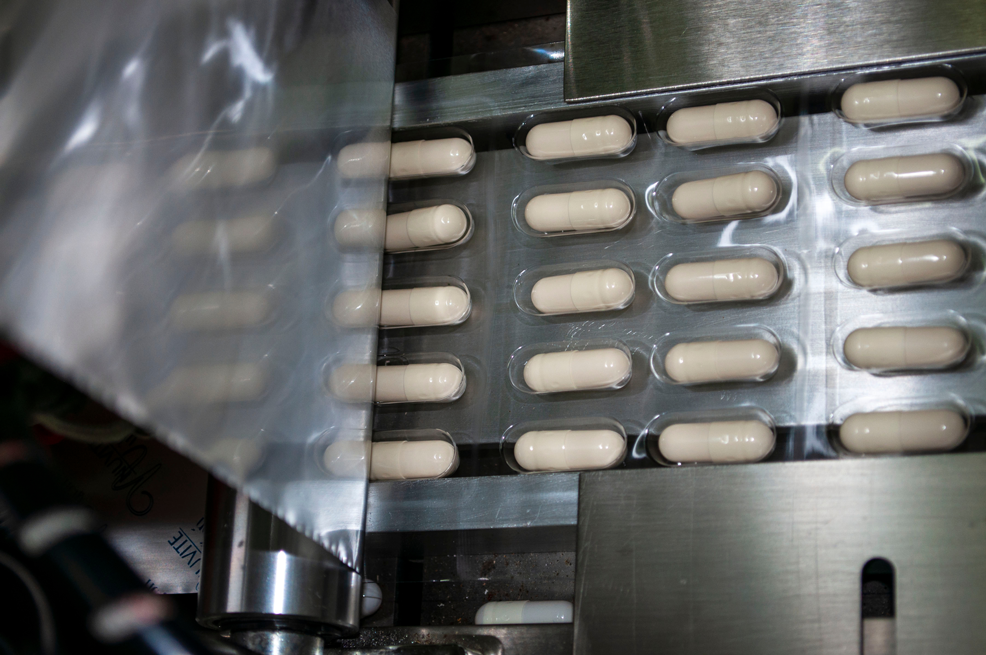Reviewed and Approved by Shelly Blackwell, Senior Director, Dietary Supplement and Tobacco, EAS Consulting Group
1-Minute Summary
- Master Manufacturing Records (MMR) and Batch Product Records (BPR) are essential for FDA compliance and ensuring product quality in the supplements industry.
- MMRs serve as detailed guides for consistent supplement production.
- BPRs are real-time records that track the manufacturing of specific batches for quality assurance and are crucial for investigating complaints and recalls.
- Regularly reviewing MMRs ensures they’re up-to-date and demonstrates commitment to regulatory compliance.
- Update MMRs when quality, safety, or product integrity could be affected.
There’s no shortage of required documentation when navigating the regulatory landscape of dietary supplements. Key among them are your Master Manufacturing Records (MMR) and Batch Production Records (BPR).
These records are not only required by FDA, they are crucial tools for ensuring product quality and safety. In this blog, we provide Quality Assurance teams the essentials for understanding your MMRs and BPRs, including the regulations that govern them, what they must include, and how they differ from each other.
What is a Master Manufacturing Record?
A Master Manufacturing Record (MMR) is a detailed guide that outlines the ingredients, quality control measures, equipment, and steps needed to consistently produce a specific supplement product.
It’s helpful to think of the MMR as the recipe for each supplement product. Sometimes referred to as a “Master Batch Record,” your MMR serves as the blueprint for product manufacturing, ensuring consistency and quality across all batches. Master Manufacturing Records play a critical role in product recalls and troubleshooting, providing a roadmap to trace potential issues.

How are Master Manufacturing Records Regulated?
21 CFR Part 111.205 stipulates that your MMRs must…
- Outline the crucial steps and guidelines in the manufacturing process to ensure that the supplement’s quality, packaging, and labeling align with the master manufacturing record.
- Implement controls and procedures to make sure each produced batch of the supplement meets the quality, packaging, and labeling criteria set in the initial guidelines.
So, what information must you include to accomplish this? The following is a list of some of the information that must be included in your Master Manufacturing Records, according to 21 CFR Part 111.210. Consult the regulations to see all the requirements.
- Name and measurement details of the dietary supplement and its individual ingredients for each batch size.
- List of all components to be used and their respective weights or measures.
- Quality control points and expected yields at each stage of manufacturing, including limits that trigger an investigation.
- Description of the packaging and a representative or actual label.
- Written instructions for crucial steps in the manufacturing process, encompassing quality assurance and labeling requirements.
- Verification procedures for manual tasks, such as component weighing and addition.
- Corrective action plans to be implemented if specifications are not met.
Examples of FDA 483 Warnings Related to MMRs
Problems with MMRs are a common reason that the U.S. FDA issues 483 warning letters to supplement manufacturers, such as this warning for failing to prepare and follow a written MMR for each unique formulation of dietary supplement, or this warning for products not being packaged and labeled as specified in the MMR.
These examples underscore how critical it is for manufacturers in the dietary supplement industry to maintain accurate and comprehensive MMRs. Not doing so can result in non-compliance with FDA regulations, leading to significant consequences, including receiving an FDA 483.
What is a Batch Production Record?
A Batch Production Record (BPR) is a real-time document that details the making of a specific batch, tracking every step, ingredient, and quality check to ensure it meets established guidelines.
BPRs are essential for quality assurance and FDA compliance, serving as evidence that each batch was manufactured according to the procedures outlined in the MMR. They establish a connection between the MMR and the final product, ensuring transparency and traceability.

How are Batch Production Records Regulated?
21 CFR 111.255 defines the requirements for your Batch Production Records:
- Prepare a BPR for every batch of dietary supplements manufactured.
- Contain comprehensive details related to the production and quality control of that specific batch.
- Follow the Master Manufacturing Record guidelines.
- Be made and maintained according to regulatory standards outlined in subpart P of the governing regulations.
21 CFR 111.260 defines what must be included in your BPRs, including the following (consult the regulations to see all the requirements):
- Include the batch, lot, or control number for the finished dietary supplement and for any lots distributed for further processing.
- List the equipment and processing lines used in the production.
- Record the date and time of maintenance, cleaning, and sanitizing of the equipment, or cross-reference to where this data is stored.
- Assign and document unique identifiers for each component, packaging, and label used.
- State the identity and weight or measure of each component used in the batch.
- Document actual yield percentages and monitoring results during production.
- Include the initials of individuals responsible for weighing, measuring, adding, and verifying components at each step.
- Record quality control reviews, including tests and examinations, and note whether the batch was approved or rejected for distribution.
What’s the Difference Between the Master Manufacturing Record and Batch Production Record?
These terms can get confusing, so let’s use a simple analogy to illustrate their differences.
Consider the Master Manufacturing Record like the recipe for your grandmother’s apple pie. It details the ingredients, their precise quantities, the specific steps to follow, baking time, and temperature. This recipe ensures the pie will be just right every time, no matter who bakes it.
Now, let’s look at the Batch Production Record. This is akin to detailed notes you take each time you bake the pie. You jot down the brand of apples you used, the type of sugar, how long you kneaded the dough, and any slight deviations you made from the original recipe.
These notes (BPR) are proof that you followed the recipe (MMR) accurately. They provide a unique record for each pie, allowing for traceability and accountability.
In the dietary supplement industry, having a detailed recipe (MMR) and keeping meticulous notes (BPR) is crucial. It ensures the quality of your products and demonstrates your commitment to regulatory compliance.
When Should I Update My MMR?
You should update your Master Manufacturing Records whenever there are changes that could affect the quality, safety, or integrity of your product, such as…
- Changes in raw materials, equipment, and processes.
- Updates to regulatory requirements.
- Shifts in personnel responsible for key operations.
- Introduction of new testing methodologies.
Even what appear to be minor adjustments can have significant repercussions for the end product and should be meticulously documented in the MMR.
It’s advisable to conduct a regular review of your MMR, at least on an annual basis, to ensure it remains current and compliant with the latest industry regulations.
Need Help With Your MMRs and BPRs?
Master Manufacturing Records and Batch Production Records are more than just regulatory requirements; they are integral to the quality, safety, and success of dietary supplements. By maintaining these records according to FDA regulations, you can ensure compliance, improve product quality, and navigate FDA inspections with confidence.
Our regulatory arm, EAS Consulting Group, has decades of experience auditing and creating Master Manufacturing Records and Batch Product Records for dietary supplement manufacturers. Reach out and we’ll be glad to answer your questions.
Certified Laboratories, meanwhile, provides a full range of dietary supplements and botanicals testing to meet your testing needs.
